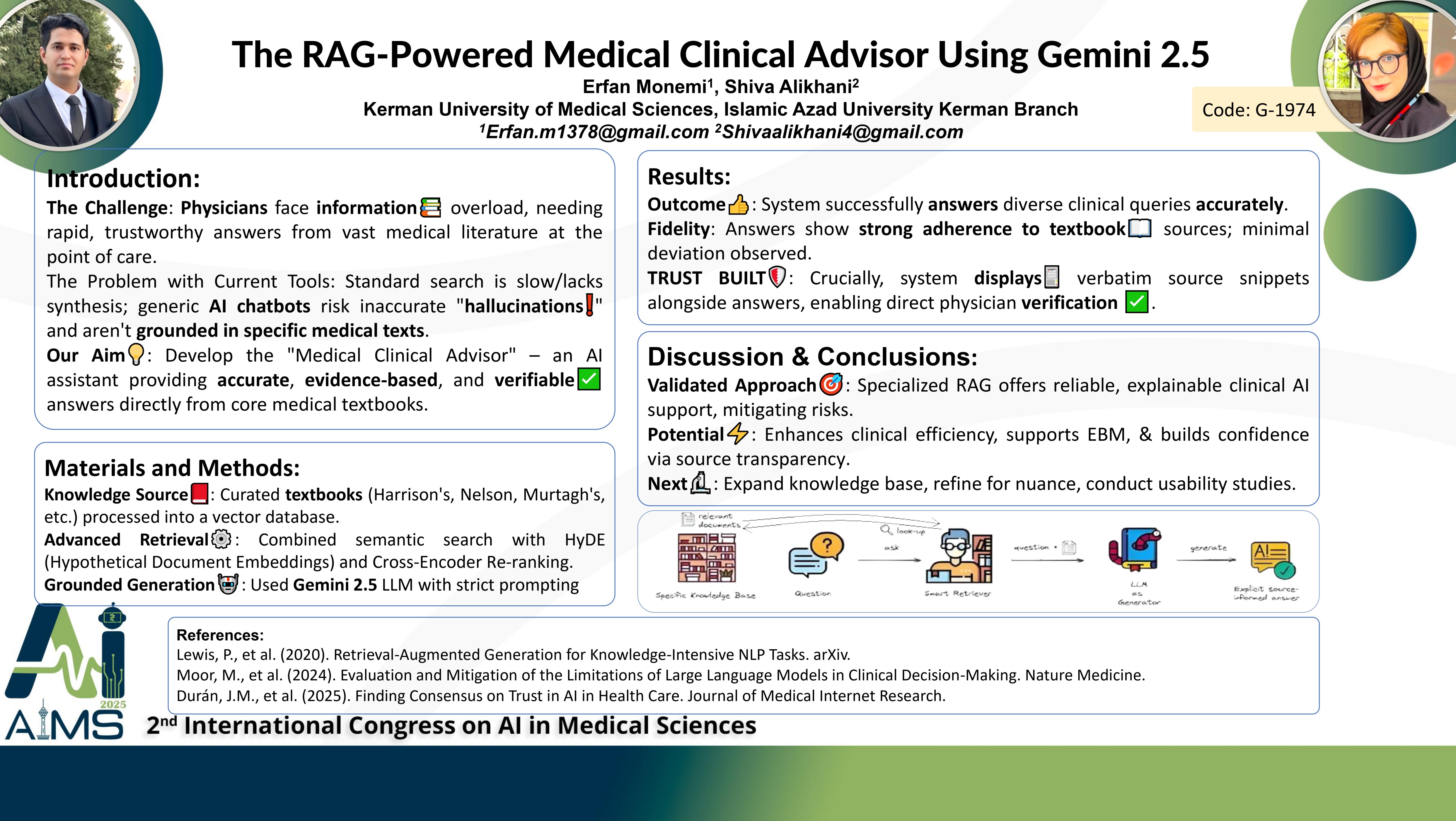The Medical Clinical Advisor: An Advanced Retrieval-Augmented Generation System for Trustworthy, Evidence-Based Clinical Guidance
Code: G-1974
Authors: Erfan Monemi * ℗, Shiva Alikhani
Schedule: Not Scheduled!
Tag: Intelligent Virtual Assistant
Download: Download Poster
Abstract:
Abstract
Background: Clinicians face expanding medical knowledge, needing efficient access to reliable, evidence-based information. Current digital tools often lack domain validation, source transparency, or synthesis capabilities essential for clinical trust. This study developed and evaluated the "Medical Clinical Advisor," a specialized AI using Retrieval-Augmented Generation (RAG) to provide physicians with accurate, context-relevant answers synthesized from curated medical literature, presented with verifiable source evidence. Method: We implemented a multi-stage RAG architecture optimized for medicine. The knowledge base used digitized authoritative sources (core internal medicine, pediatric, and general practice textbooks) plus clinical guidelines. Text underwent optimized chunking and vectorization via advanced sentence embeddings. Query understanding utilized Hypothetical Document Embeddings (HyDE) generated by an LLM, with relevance refined by cross-encoder re-ranking. A state-of-the-art LLM (Gemini 2.5 series) synthesized concise answers, governed by strict prompt engineering mandating factual grounding within retrieved context and preventing extrapolation. Crucially, the system presents generated answers alongside verbatim source snippets for direct physician verification. Results: A functional Medical Clinical Advisor prototype was successfully implemented. Evaluation across diverse clinical queries (diagnosis, management, treatment) demonstrated consistent retrieval of highly relevant passages, with the HyDE and re-ranking strategy enhancing precision. Generated answers exhibited high fidelity to source material, adhering strictly to retrieved evidence due to rigorous prompt constraints, thus minimizing factual deviation. The integrated display of source excerpts effectively facilitated user verification against original texts. Conclusion: The Medical Clinical Advisor validates the potential of specialized RAG systems integrating curated knowledge with advanced NLP for reliable, explainable clinical decision support. This approach mitigates risks associated with ungrounded AI in high-stakes medical settings, while integrated source transparency fosters physician trust. This system holds potential to enhance clinical efficiency, support evidence-based practice, and improve clinician confidence. Future work includes knowledge base expansion, further optimization for nuanced queries, and formal usability assessments with clinicians.
Keywords
Retrieval-Augmented-Generation, Artificial Intelligence, Evidence-Based Medicine
